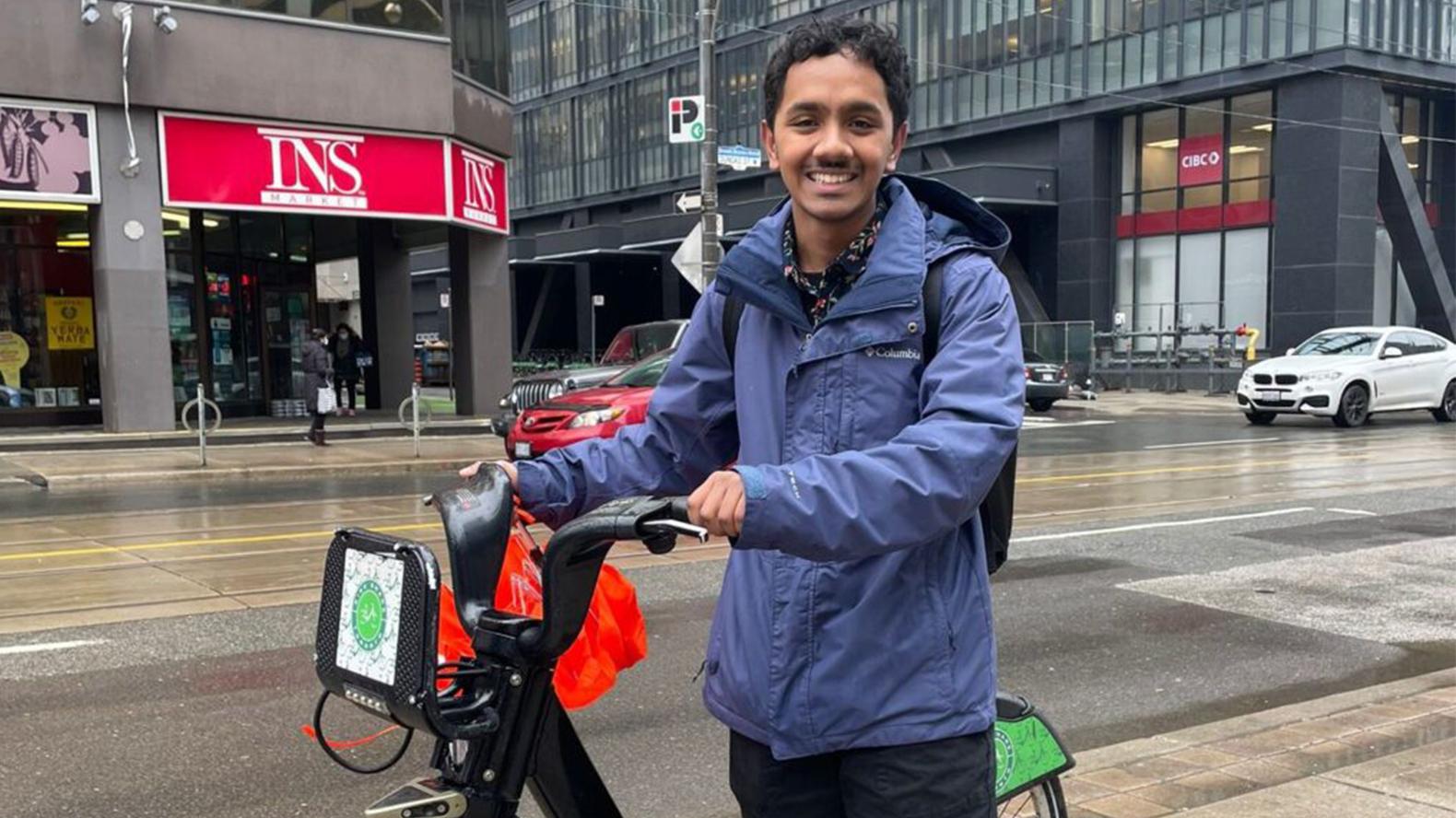
UBC student Abul Bashar Rahman is preparing for an epic bike ride across Bangladesh to produce a documentary about how those most vulnerable to climate change in the country are experiencing and preparing for its impacts.
With climate change putting vast swathes of Bangladesh at risk of catastrophic flooding, including his home city of Dhaka, the 45-day journey is intensely personal for 21-year-old Rahman, an undergraduate student studying international economics.
“At its core, my bike trip is to understand what climate change is, to speak to people who are suffering,” says Rahman. “With the documentary I want to portray the resilience effort. People are not giving up. I hope I can potentially change systems by using my platform and status.”
As a UBC undergraduate delegate at the UN Climate Change Conference in Sharm El-Sheikh in Egypt last year, Rahman says he was left with a very distinct impression of what was missing from the global conversation.
“I was struck by the absence of marginalized Bangladeshi voices, despite their enduring the severe impacts of climate change caused by the Global North. The inclusion of their perspectives in climate discussions is vital, as they bear the brunt of the consequences and provide invaluable insights into effective resilience efforts,” he says. “Combatting climate change isn’t just about fancy discussions in air-conditioned rooms. You are disconnected from the reality on the ground.”
That “reality on the ground” is what Rahman is hoping to see, hear and document on his journey so he and those who watch the planned 40-minute documentary can learn.
“I realize that I am in a position of privilege. I’m a first-generation, low-income student at UBC because I was able to get a full scholarship. I also recognize more and more that to make change you must be in a position of power. That’s why I’m at UBC – to be in a position where I can have a louder voice,” he says.
Despite having the assistance of a friend who will help with video and logistics, the trip won’t be easy. Rahman’s longest ride to date has been 80 km and he’ll be clocking more than 900 rugged kms on his planned route between the cities of Tetulia and Teknaf.
Cait Murphy, an engagement specialist at UBC’s Sustainability Hub, went over Rahman’s proposals with him and has helped connect him to local organizations for support and funding. The Sustainability Hub (formerly the UBC Sustainability Initiative) was created in 2009 and works to provide support for UBC community members who are doing innovative and creative projects that push boundaries and inspire people to act upon the earth’s most urgent challenges.
Murphy was so inspired by the idea she also lent Rahman her own personal GoPro camera.
“It will be put to good use,” Murphy says. “His work is really incredible.”
Rahman has a $5,000 grant through the Faculty of Arts Entrepreneurial Co-op and has invested much of his savings into the project. He’s hoping to raise additional funding to cover the full cost of the trip, logistics and the work that will follow on the documentary, a website and a climate atlas so he can map resilience efforts underway in Bangladesh.
It’s a big job, but Rahman says he’s excited to start his ride May 1.
“I know I may not achieve all of my goals, but I have to try,” he says.
Anyone interested in learning more about Rahman’s ride can visit his website at storiesofchange.co.
This story was originally published by UBC News.